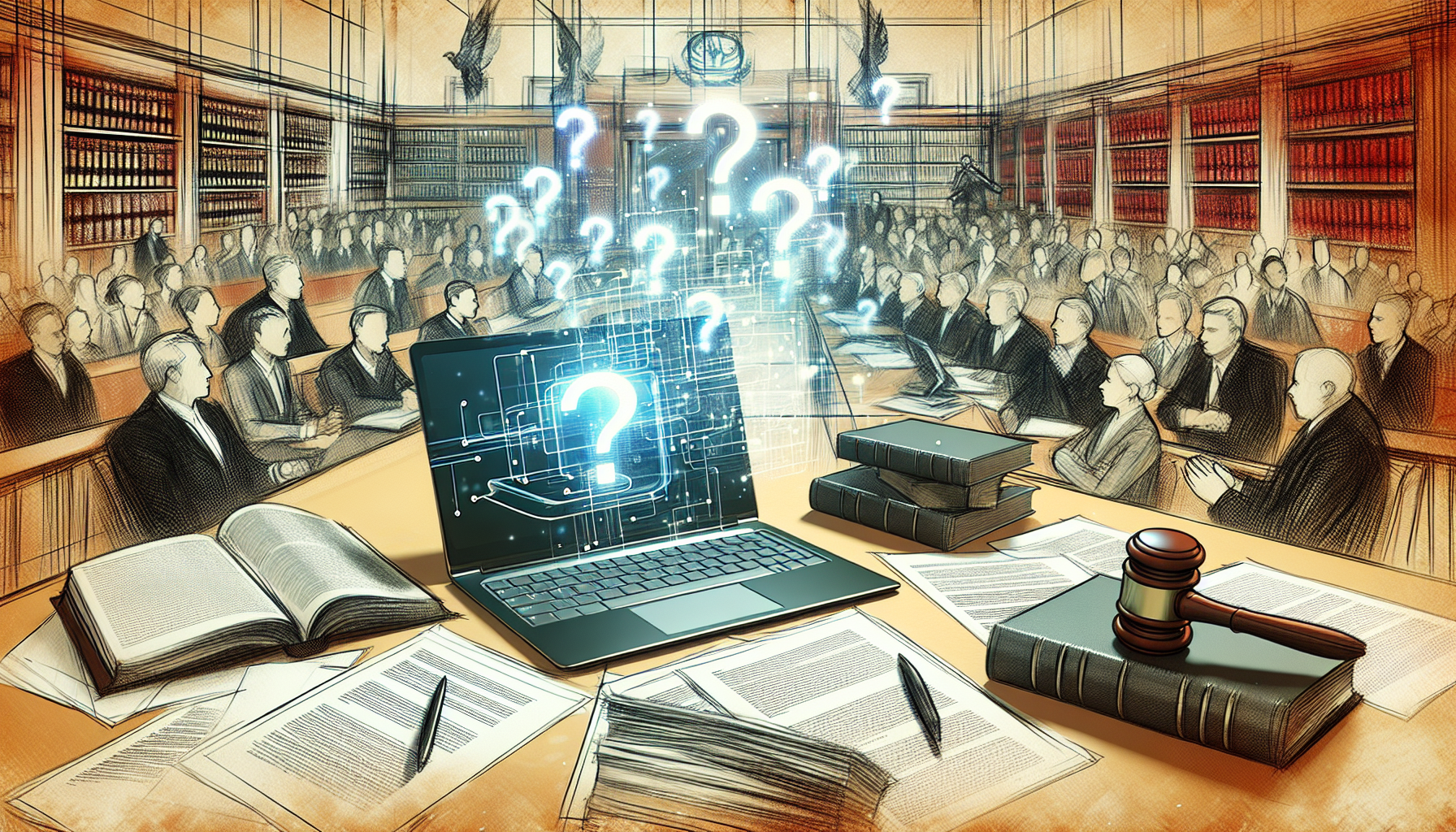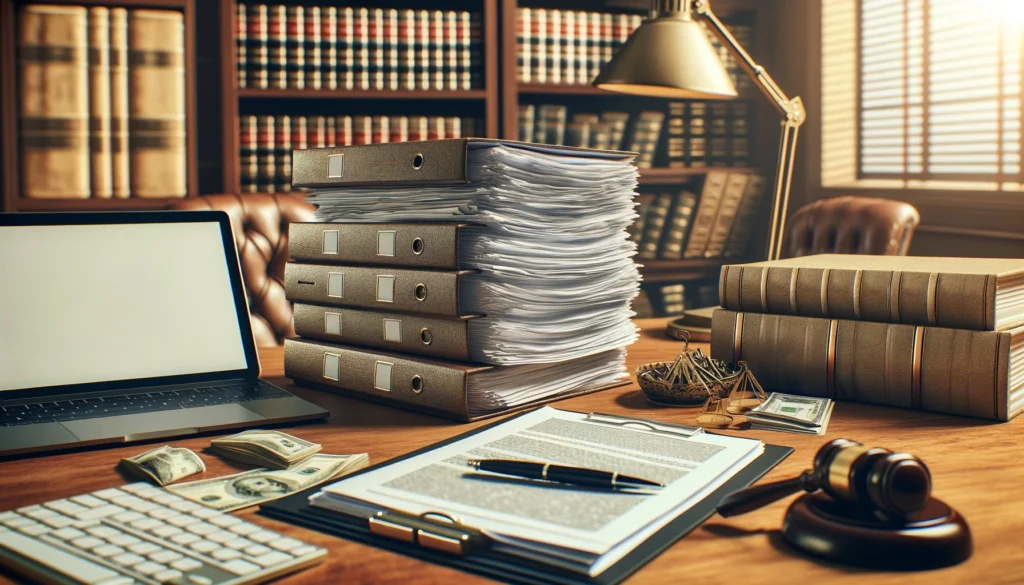
Unveiling the Future: Enhancing Paralegal Efficiency with AI
In recent years, the legal industry has witnessed a revolutionary transformation through the integration of Artificial Intelligence (AI). Legal professionals are increasingly relying on AI to improve various aspects of their practice, particularly in personal injury trials where speed and accuracy are paramount. The ability to process information rapidly and with precision can make a critical difference in the outcomes of these cases.
Advancements in AI are offering new tools that streamline case preparation and enhance the efficiency of paralegals. By automating routine tasks and providing deep analytical insights, AI technologies are reshaping the traditional legal landscape and setting new standards for excellence.
Harnessing the Power of ChatGPT: A Brief Overview
ChatGPT, developed by OpenAI, is a prime example of AI’s transformative potential in legal settings. As a language model (LLM), ChatGPT is designed to understand and generate human-like text based on provided prompts. Its key functionalities include text summarization, drafting documents, and generating pertinent questions—all essential in personal injury cases where the minutiae of details matter.
ChatGPT’s ability to process and generate detailed responses quickly makes it an invaluable tool for paralegals. Whether it’s identifying key aspects of medical reports or drafting comprehensive interrogatories, this AI-powered assistant is proving to be an indispensable asset in the legal toolkit.
Also read:
Sculpting Precision: Crafting Expert Witness Questions
The quality of questions directed to expert witnesses can significantly influence the direction of a personal injury trial. Effective questions are clear, concise, and targeted, facilitating the extraction of precise information and expert insights. However, crafting such questions is often fraught with challenges, including ambiguity and bias.
Using AI like ChatGPT can mitigate these pitfalls by generating expert witness questions that are comprehensive and relevant. Paralegals can harness AI to:
- Ensure clarity in questions
- Eliminate leading or suggestive language
- Incorporate technical jargon appropriately
This AI-driven approach not only saves time but also enhances the precision and efficacy of the questions posed during examinations.
Also read:
Prompting Perfection: Mastering the Art of Input
The effectiveness of AI like ChatGPT heavily relies on the quality of input provided. Crafting nuanced and creative prompts is an art that, when mastered, yields exceptionally relevant responses. For instance:
Example Prompt #1: “Draft a series of questions for an orthopedic surgeon expert witness regarding the causation of injuries in a slip-and-fall accident.”
Example Prompt #2: “Generate questions to challenge an opposing expert’s opinion on the long-term impacts of a traumatic brain injury.”
Such tailored prompts ensure the output meets specific needs. Ethical considerations are also crucial when using AI. Ensuring the confidentiality of case details and avoiding biases in AI-generated content are key aspects that lawyers must navigate while incorporating AI into their workflow.
Also read:
Streamlining Workflow: Integrating AI into Daily Paralegal Tasks
AI can significantly streamline routine paralegal tasks, offering unprecedented efficiency in case preparation. Common applications include:
- Document Summarization: Quickly summarizing lengthy medical records or legal documents.
- Legal Research: Providing swift references to relevant case laws and statutes.
- Drafting Interrogatories: Generating detailed and precise interrogatories tailored to specific case needs.
Integrating ChatGPT into the daily workflow is straightforward. A step-by-step guide may involve:
- Identifying routine tasks that are time-consuming.
- Using ChatGPT to draft documents or summarize records.
- Reviewing and refining AI-generated content for accuracy.
This integration not only optimizes time management but also ensures higher accuracy in case document management.
Also read:
Beyond Efficiency: Enhancing Analytical Acumen with AI
AI’s capabilities extend beyond routine tasks, offering powerful analytical tools that assist paralegals in identifying patterns and insights crucial to their cases. By analyzing witness testimonies, for instance, AI can highlight inconsistencies or corroborating details that might have been overlooked.
This analytical prowess is invaluable during cross-examinations, where leveraging AI-generated insights can effectively challenge opposing witnesses and strengthen the case.
Also read:
Final Preparations: Ensuring AI-Assisted Perfection in the Courtroom
As trial dates loom, ensuring the perfection of AI-assisted preparatory work is crucial. This involves:
- Conducting last-minute reviews of AI-generated content.
- Fine-tuning questions for expert witnesses to ensure clarity and impact.
Such meticulous preparation ensures that the AI inputs bolster the case most effectively when presented in the courtroom.
Also read:
AI in Practice: Ethical Considerations and Future Prospects
The integration of AI in legal practices brings to the fore significant ethical considerations. Ensuring client confidentiality, mitigating biases in AI outputs, and adhering to ethical standards are paramount. Legal professionals must stay informed about the evolving ethical landscape and regulatory guidelines governing AI use.
Looking ahead, advancements in AI promise even more sophisticated tools that could revolutionize paralegal practices further. Staying proactive in adopting these tools will be essential for maintaining a competitive edge.
Also read:
Conclusion: The AI-Enhanced Paralegal – A New Era of Legal Excellence
In summary, AI technologies like ChatGPT are reshaping the efficiency and capabilities of paralegals in personal injury trials. The shift towards an AI-driven approach ensures greater accuracy, saves time, and enhances analytical insights. Embracing ongoing learning and adaptation to these technological advancements will be key to thriving in this new era of legal excellence.


